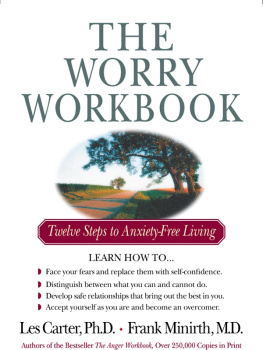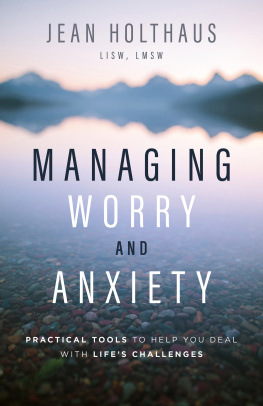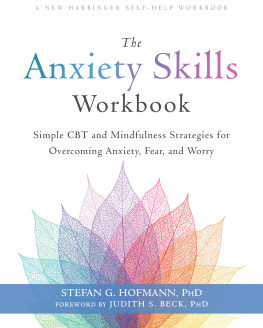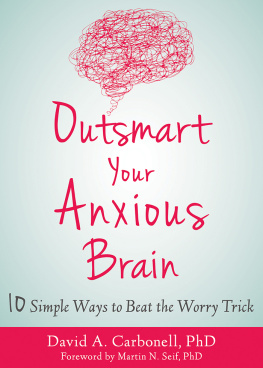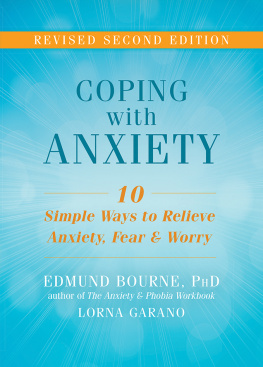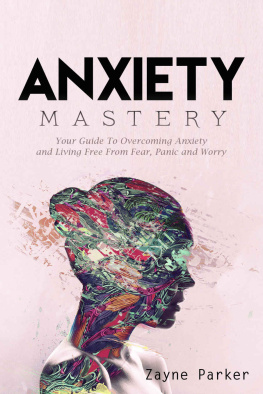George Lincoln Walton - Why Worry?
Here you can read online George Lincoln Walton - Why Worry? full text of the book (entire story) in english for free. Download pdf and epub, get meaning, cover and reviews about this ebook. publisher: Duke Classics, genre: Science. Description of the work, (preface) as well as reviews are available. Best literature library LitArk.com created for fans of good reading and offers a wide selection of genres:
Romance novel
Science fiction
Adventure
Detective
Science
History
Home and family
Prose
Art
Politics
Computer
Non-fiction
Religion
Business
Children
Humor
Choose a favorite category and find really read worthwhile books. Enjoy immersion in the world of imagination, feel the emotions of the characters or learn something new for yourself, make an fascinating discovery.
- Book:Why Worry?
- Author:
- Publisher:Duke Classics
- Genre:
- Rating:5 / 5
- Favourites:Add to favourites
- Your mark:
- 100
- 1
- 2
- 3
- 4
- 5
Why Worry?: summary, description and annotation
We offer to read an annotation, description, summary or preface (depends on what the author of the book "Why Worry?" wrote himself). If you haven't found the necessary information about the book — write in the comments, we will try to find it.
Are you beset by anxiety? If so, youre not alone. Today, millions of people suffer from this mental affliction. In Why Worry?, author George Lincoln Walton gets to the bottom of this problem, discovering the root causes that often underlie chronic anxiety and offering readers plenty of practical tips to help ensure that you can say goodbye to the anxiety trap for good.
Why Worry? — read online for free the complete book (whole text) full work
Below is the text of the book, divided by pages. System saving the place of the last page read, allows you to conveniently read the book "Why Worry?" online for free, without having to search again every time where you left off. Put a bookmark, and you can go to the page where you finished reading at any time.
Font size:
Interval:
Bookmark:

First published in 1908
ISBN 978-1-62011-017-1
Duke Classics
2012 Duke Classics and its licensors. All rights reserved.
While every effort has been used to ensure the accuracy and reliability of the information contained in this edition, Duke Classics does not assume liability or responsibility for any errors or omissions in this book. Duke Classics does not accept responsibility for loss suffered as a result of reliance upon the accuracy or currency of information contained in this book.
The legs of the stork are long, the legs of the duck are short; you cannotmake the legs of the stork short, neither can you make the legs of the ducklong. Why worry?Chwang Tsze.
TO MY LONG-SUFFERING FAMILY AND CIRCLE OF FRIENDS, WHOSE PATIENCE HASBEEN TRIED BY MY EFFORTS TO ELIMINATE WORRY, THIS BOOK IS AFFECTIONATELYDEDICATED.
No apology is needed for adding another to the treatises on a subject whoseimportance is evidenced by the number already offered the public.
The habit of worry is not to be overcome by unaided resolution. It is hopedthat the victim of this unfortunate tendency may find, among the homelyillustrations and commonplace suggestions here offered, something to turnhis mind into more healthy channels. It is not the aim of the writer totransform the busy man into a philosopher of the indolent and contemplativetype, but rather to enable him to do his work more effectively byeliminating undue solicitude. This elimination is consistent even with the"strenuous life."
One writer has distinguished between normal and abnormal worry, anddirected his efforts against the latter. Webster's definition of worry (Astate of undue solicitude) obviates the necessity of deciding what degreeand kind of worry is abnormal, and directs attention rather to decidingwhat degree of solicitude may be fairly adjudged undue.
In the treatment of a subject of this character a certain amount ofrepetition is unavoidable. But it is hoped that the reiteration offundamental principles and of practical hints will aid in the applicationof the latter. The aim is the gradual establishment of a frame of mind.The reader who looks for the annihilation of individual worries, or whohopes to influence another by the direct application of the suggestions,may prepare, in the first instance for disappointment, in the second, fortrouble.
The thanks of the writer are due to Miss Amy Morris Homans, Director ofthe Boston Normal School of Gymnastics, for requesting him to make to herstudents the address which forms the nucleus of these pages.
GEORGE L. WALTON.
BOSTON, April, 1908.
WORRY. A state of undue solicitude.
HYPOCHONDRIA. A morbid mental condition characterized by undue solicituderegarding the health, and undue attention to matters thereto pertaining.
OBSESSION. An unduly insistent and compulsive thought, habit of mind, ortendency to action.
DOUBTING FOLLY (Folie du doute.) A state of mind characterized by atendency unduly to question, argue and speculate upon ordinary matters.
NEURASTHENIA. A form of nervous disturbance characterized by exhaustion andirritability.
PHOBIA. An insistent and engrossing fear without adequate cause, as judgedby ordinary standards.
OCCUPATION NEUROSIS. A nervous disorder in which pain, sometimes withweakness and cramp, results from continued use of a part.
PSYCHO-THERAPY. Treatment through the mind.
No other technical terms are used.
When Thales was asked what was difficult he said, "To know oneself"; andwhat was easy, "To advise another."
Marcus Aurelius counselled, "Let another pray, 'Save Thou my child,' but dothou pray, 'Let me not fear to lose him.'"
Few of us are likely to attain this level; few, perhaps, aspire to doso. Nevertheless, the training which falls short of producing completeself-control may yet accomplish something in the way of fitting us,by taking the edge off our worry, to react more comfortably to oursurroundings, thus not only rendering us more desirable companions, butcontributing directly to our own health and happiness.
Under the ills produced by faulty mental tendencies I do not include cancerand the like. This inclusion seems to me as subversive of the laws ofnature as the cure of such disease by mental treatment would be miraculous.At the same time, serious disorders surely result from faulty mentaltendencies.
In this category we must include, for example, hypochondria, a disturbanceshown by undue anxiety concerning one's own physical and mental condition.This disorder, with the allied fears resulting from the urgent desire tobe always absolutely safe, absolutely well, and absolutely comfortable, iscapable, in extreme cases, of so narrowing the circle of pleasure and ofusefulness that the sufferer might almost as well have organic disease.
Neurasthenia (nervous prostration) has for its immediate exciting causesome overwork or stress of circumstance, but the sufferer not infrequentlywas already so far handicapped by regrets for the past, doubts for thepresent, and anxieties for the future, by attention to minute detailsand by unwillingness to delegate responsibilities to others, that he wasexhausted by his own mental travail before commencing upon the overworkwhich precipitated his breakdown. In such cases the occasion of thecollapse may have been his work, but the underlying cause was deeper. Manyneurasthenics who think they are "all run down" are really "all wound up."They carry their stress with them.
Among the serious results of faulty mental habit must be included alsothe doubting folly (folie du doute). The victim of this disorder is soquerulously anxious to make no mistake that he is forever returning to seeif he has turned out the gas, locked the door, and the like; in extremecases he finally doubts the actuality of his own sensations, and so farsuccumbs to chronic indecision as seriously to handicap his efforts. Thiscondition has been aptly termed a "spasm of the attention."
The apprehensive and fretful may show, in varying degree, signs of eitheror all these conditions, according as circumstances may direct theirattention.
Passing from serious disorders to minor sources of daily discomfort, thereare few individuals so mentally gifted that they are impervious to thedistress occasioned by variations of temperature and of weather; to theannoyance caused by criticism, neglect, and lack of appreciation on thepart of their associates; to active resentment, even anger, upon moderateprovocation; to loss of temper when exhausted; to embarrassment in unusualsituations; to chronic indecision; to the sleeplessness resulting frommental preoccupation; and above all, to the futile regrets, the querulousdoubts, and the undue anxiety included under the term worry, designatedby a recent author "the disease of the age."
Something may be accomplished in the way of lessening all these ills bycontinuous, properly directed effort on the part of the individual. Everyinroad upon one faulty habit strengthens the attack upon all, and each gainmeans a step toward the acquisition of a mental poise that shall give itspossessor comparative immunity from the petty annoyances of daily life.
In modern psycho-therapy the suggestion, whether on the part of thephysician or of the patient, plays a prominent part, and it is in thisdirection, aside from the advice regarding occupation and relaxation, thatmy propositions will trend. I shall not include, however, suggestionsdepending for their efficacy upon self-deceit, such as might spring, forexample, from the proposition that if we think there is a fire in the stoveit warms us, or that if we break a pane in the bookcase thinking ita window, we inhale with pleasure the resulting change of air. Thesuggestions are intended to appeal to the reason, rather than to theimagination.
Font size:
Interval:
Bookmark:
Similar books «Why Worry?»
Look at similar books to Why Worry?. We have selected literature similar in name and meaning in the hope of providing readers with more options to find new, interesting, not yet read works.
Discussion, reviews of the book Why Worry? and just readers' own opinions. Leave your comments, write what you think about the work, its meaning or the main characters. Specify what exactly you liked and what you didn't like, and why you think so.


